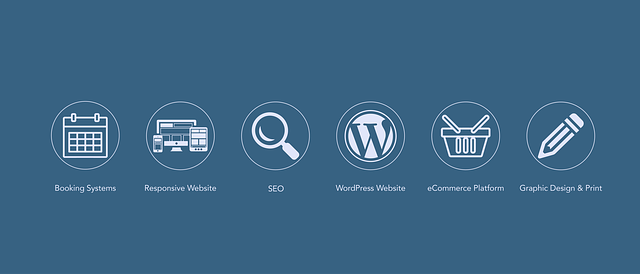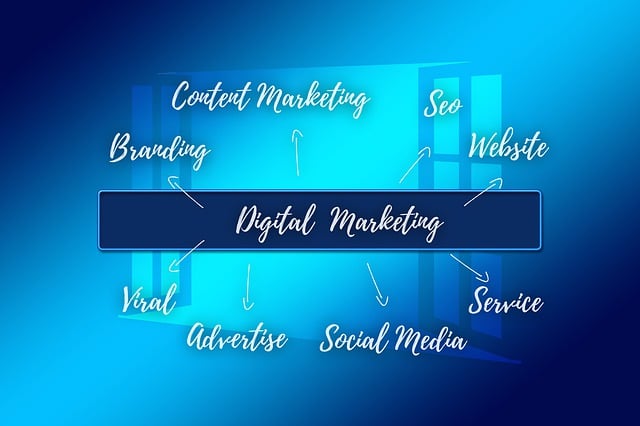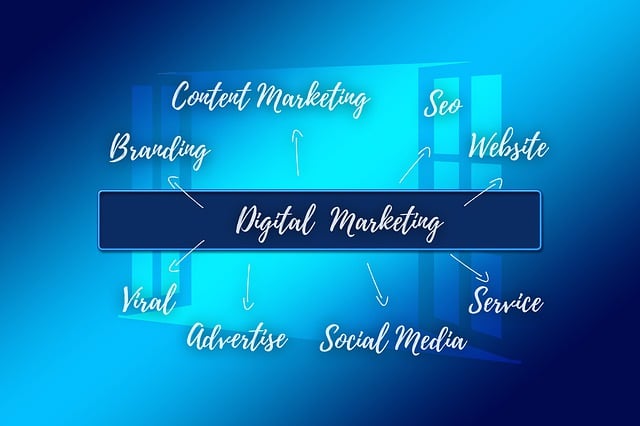SEO Services strategize online performance through keyword research, content & technical optimization, and link building. Clear business goals guide these services for targeted, productive efforts. Effective packages include on-page, off-page, & technical SEO audits, boosting rankings & visibility. Ethical practices focus on organic growth, while unethical methods risk penalties. Choosing reputable agencies with a strong understanding of trends and successful track records is crucial. Long-term success demands consistent adaptation & regular updates for dynamic relevance.
In today’s digital era, a robust online presence is non-negotiable for businesses aiming to thrive. Search Engine Optimization (SEO) packages serve as powerful tools to elevate your website’s visibility and attract targeted traffic. This comprehensive guide delves into the intricacies of SEO services, offering insights on defining business goals, understanding package components, and navigating industry-specific strategies. From key performance indicators to ethical practices, we equip you with knowledge to make informed decisions regarding your online success.
Understanding SEO Services: The Basics

Search Engine Optimization (SEO) services are designed to enhance a website’s online visibility and search engine rankings. The primary goal is to ensure that your site appears at the top of results when potential customers search for keywords related to your business or products. SEO involves a range of strategies, from keyword research and content optimization to link building and technical adjustments, all aimed at making your website more attractive to both users and search engines.
At its core, SEO is about understanding how search algorithms work and leveraging this knowledge to improve your site’s performance. Professional SEO services offer tailored solutions that consider not just the present trends but also future-proof strategies, ensuring your website remains competitive in an ever-evolving digital landscape. By optimizing for relevant keywords, crafting compelling content, and building high-quality backlinks, these services aim to drive organic traffic, increase conversions, and ultimately, boost your online presence.
Defining Your Business Goals for SEO

Defining your business goals is a crucial step in any successful SEO strategy. Before diving into optimization, it’s essential to understand what you want to achieve with your online presence. Are you looking to increase website traffic, boost conversion rates, or improve brand visibility? SEO services tailor their packages to align with these objectives, ensuring every effort is directed towards driving meaningful results.
When outlining business goals, consider both short-term and long-term aspirations. Short-term goals might include improving keyword rankings for specific target phrases while long-term ambitions could revolve around establishing your brand as an industry leader. This clarity will guide the selection of relevant SEO techniques and metrics for measuring success, ensuring your efforts are focused and effective.
Key Components of an Effective SEO Package

An effective SEO package should encompass several key components to ensure maximum visibility and online presence for your business. Firstly, a comprehensive keyword research strategy is essential. This involves identifying and targeting relevant keywords that potential customers are using to search for products or services similar to yours. By understanding these keywords, you can optimize your website content, meta tags, and headings to rank higher in search engine results.
Additionally, an SEO package should include on-page optimization, off-page optimization, and technical SEO audits. On-page optimization ensures that each page of your website is optimized with relevant content, proper structure, and compelling calls to action. Off-page optimization focuses on building high-quality backlinks from reputable sources to boost your domain authority and improve your search rankings. Technical SEO audits identify and fix any issues related to site speed, mobile compatibility, security, and overall site structure, ensuring a seamless user experience that keeps visitors engaged.
Customizing SEO Strategies for Different Industries

Search Engine Optimization (SEO) is not a one-size-fits-all strategy, and that’s where specialized SEO packages come into play. Each industry has its unique characteristics, challenges, and opportunities, which means tailored SEO services are essential for optimal results. For instance, an e-commerce business focusing on local sales will require a different approach than a B2B software company aiming for global reach.
Customized SEO strategies consider industry-specific keywords, target audiences, and competitive landscapes. By understanding these nuances, SEO service providers can create effective plans that drive relevant traffic and conversions. This personalization ensures that marketing efforts are aligned with the specific goals and needs of different industries, ultimately leading to better search engine rankings and increased visibility.
Measuring Success: KPIs for SEO Packages

Measuring success is a vital aspect of any SEO strategy, and defining key performance indicators (KPIs) is essential for evaluating the effectiveness of your SEO packages. These KPIs should align with your business goals and provide clear insights into the return on investment (ROI) of your SEO services. One critical metric to track is organic traffic growth, as it indicates how well your website is performing in search engine rankings. By monitoring monthly or quarterly increases in organic visitors, you can assess the success of your optimization efforts.
Additionally, tracking conversion rates and lead generation are essential KPIs for SEO packages. Conversion rate measures the percentage of website visitors who take a desired action, such as making a purchase or filling out a contact form. A rise in conversion rates suggests that your SEO services are improving the overall user experience and persuading visitors to engage with your brand. Lead generation KPIs can help identify which strategies are most effective at capturing potential customers’ information, enabling businesses to refine their marketing efforts over time.
Ethical vs Unethical SEO Practices: What to Avoid

When considering SEO services, it’s crucial to understand the distinction between ethical and unethical practices. Ethical SEO focuses on improving your search rankings through proven strategies that align with Google’s guidelines. This includes optimizing website content, building quality backlinks, and enhancing user experience. Unethical practices, on the other hand, involve manipulative techniques such as keyword stuffing, hiding text, or engaging in spammy link building—tactics that can lead to penalties and damage your site’s reputation.
Avoiding these unethical SEO practices is essential for long-term success. Not only do they risk getting your website penalized by search engines, but they also fail to deliver genuine results and can even harm your brand’s image. Always opt for reputable SEO services that prioritize transparency and adherence to best practices, ensuring your site remains robust, relevant, and reliable in the eyes of both users and search algorithms.
Choosing the Right SEO Agency or Freelancer

Choosing the right SEO agency or freelancer is a crucial step in enhancing your online visibility and boosting your search engine rankings. It’s essential to research their expertise, experience, and understanding of the latest SEO trends and best practices. Look for agencies that offer comprehensive SEO services, including keyword research, on-page optimization, link building, and analytics reporting.
Reputation matters too. Read client testimonials, check their case studies, and review their past projects. Ensure they have a proven track record of delivering tangible results. An ideal partner should provide transparent communication, regular updates, and be adaptable to your evolving business needs.
Long-term SEO Optimization: A Continuous Process

Search Engine Optimization (SEO) isn’t a one-time fix; it’s an ongoing process that requires continuous optimization and refinement. Long-term SEO involves consistently evaluating and adjusting strategies to keep up with algorithm updates, competitor moves, and evolving user preferences. This ongoing commitment ensures that your website remains relevant and visible in the ever-changing digital landscape.
Effective long-term SEO optimization includes regular content updates, keyword research, backlink monitoring, and technical audits. By integrating fresh, high-quality content tailored to target keywords, building strategic backlinks from reputable sources, and maintaining a technically sound website infrastructure, you can enhance your search engine rankings over time. These efforts contribute to increased organic traffic, improved user experience, and better brand visibility, making it an indispensable component of any comprehensive SEO services package.
